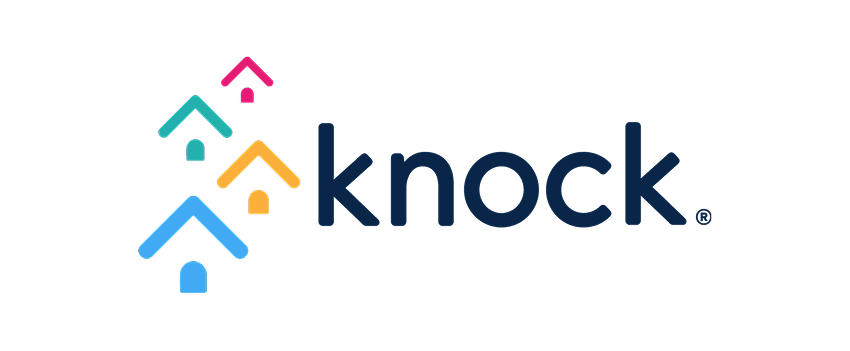Seamlessly
integrate
with your current PMS and CRM
For property management teams juggling missed calls, delayed follow-ups, and endless administrative tasks, daily operations can feel like a constant scramble. That’s why more operators are turning to AI in property management—a new category of intelligent automation built to streamline leasing, collections, and resident support. By replacing phone tag and paperwork with predictive insights and always-on responsiveness, AI is transforming how multifamily communities operate and perform.
AI in property management refers to artificial intelligence that can learn, adapt, and perform tasks that traditionally required human intervention. Unlike basic automation, which follows pre-programmed rules, AI can analyze patterns, understand context, and make intelligent decisions.
In practical terms, it means AI assistants don't just respond to inquiries with canned answers, but actually understand what prospects are asking and provide genuinely helpful responses. AI has emerged as more than just a buzzword. It's a tool that handles the repetitive, time-sensitive tasks that previously kept onsite teams working evenings and weekends. From the moment a prospect discovers a property online to the final rent collection of the month, AI is quietly working behind the scenes to create smoother experiences for everyone involved.
AI-powered property management didn't happen overnight. For decades, the multifamily industry relied heavily on manual processes, phone calls, paper applications, in-person tours, and handwritten maintenance logs. Property managers were constantly tethered to their phones, responding to inquiries during all times of the day.
The first wave of change came with property management software systems in the early 2000s, which digitized record-keeping and basic operations. Customer relationship management (CRM) tools followed, helping teams track leads and communications more systematically. But these were still fundamentally manual systems; they required human input for every action and decision.
The real transformation began around 2015, when chatbots entered the property management space. These early tools could answer basic questions and capture lead information, but they were limited by rigid scripts and couldn't handle complex conversations. They represented the first step toward always-on communication, but frequently frustrated users with their inability to understand nuanced questions.
The expectations of renters have fundamentally changed. Today's residents grew up with Amazon, Netflix, and instant gratification. Residents expect immediate responses, seamless digital experiences, and 24/7 availability. In fact, an article by the National Apartment Association found that AI adoption has surged, with usage increasing from 21% in 2024 to 34% in 2025. Multifamily properties that can't meet these expectations on their onsite team alone.
What Does AI Actually Do in Property Management?
The abstract promise of AI is compelling, but the real value lies in specific, tangible applications. Across the property management lifecycle, from initial prospect inquiry to lease renewal, AI is handling tasks that once consumed hours of staff time while simultaneously improving outcomes. Here's how AI is making a difference in the most critical areas of property operations.
The multifamily leasing office has always been a juggling act of tasks that require swift action. Studies show that the first property to respond to a lead inquiry is far more likely to convert that prospect into a resident. Yet the reality of property management means leasing agents can't be available 24/7/365. Your onsite conducting tours, processing applications, or simply trying to maintain some semblance of work-life balance.
This is where AI leasing assistants have become game-changing. These sophisticated systems can engage with prospects instantly, regardless of when they reach out whether that's 11PM on a Tuesday or 7AM on a Sunday morning. Unlike the chatbots of yesterday, today's AI leasing assistants can handle genuinely complex conversations across multiple channels: website chat, text messaging, email, and even phone calls. In our own response time report, we see that 70% of booked tours are done within the hour of the inquiry.
Rent collection has always been one of the most delicate aspects of property management. On one hand, consistent, on-time payments are essential to property cash flow and financial health. On the other, overly aggressive collection tactics can damage resident relationships, hurt renewal rates, and even create fair housing concerns.
Traditional collection approaches typically involved a standardized sequence: a generic reminder before rent is due, followed by increasingly stern notices for late payments, and eventually escalation to formal collection processes. This one-size-fits-all approach often missed the mark.
AI is transforming collections by bringing intelligence and personalization to the process. Modern AI collection systems analyze historical payment patterns to identify residents who are likely to pay late and can adjust communication strategies. For a resident who's never been late before, the AI might send a gentle, friendly reminder assuming this is simply an oversight. For someone with a history of late payments, the system might communicate more frequently and gain commitment to a promise date.
While chatbots and text-based AI have dominated the conversation about property management technology, voice AI represents the newest frontier and perhaps the most impactful.
The problem with phone calls in property management is one of timing and availability. Prospects often call outside business hours, during tours, or when leasing staff are in meetings. Each missed call is a potential lost lease, and industry research suggests that unanswered calls reduce conversion rates by up to 40%.
AI voice technology solves this problem by answering every call, every time. Modern voice AI can handle complex conversations with remarkable natural language capabilities. When a prospect calls asking about pet policies, parking availability, and move-in specials, the AI doesn't just rattle off scripted information it engages in a back-and-forth dialogue
Maintenance operations have traditionally been one of the most labor-intensive and complex aspects of property management. A typical mid-sized property might receive dozens of maintenance requests each week, each requiring assessment, prioritization, scheduling, and follow-up. Multiply that across a portfolio, and the administrative burden becomes staggering.
AI is streamlining maintenance operations in several powerful ways. When a resident submits a maintenance request, whether through a portal, text message, or phone call, AI can immediately categorize the issue, assess its urgency, and route it to the appropriate team or vendor. A report of no hot water gets flagged as urgent and immediately escalated, while a request to replace a lightbulb is appropriately prioritized as routine.
For example, an AI system might notice that a particular HVAC unit has required service three times in the past six months, and each incident occurred during periods of high usage. The system can flag this unit for replacement before it fails during the peak of summer, saving the property from an expensive emergency repair and sparing residents the discomfort of a broken air conditioner.
The true power of AI in property management comes from its cumulative impact across the entire portfolio, not just isolated use cases. It is elevating the KPIs that define success.
The compound effect of these benefits is what makes AI transformative rather than merely helpful. A property that converts more leads, collects rent more consistently, operates more efficiently, and retains residents longer are operating at a higher frequency.
As AI becomes more prevalent in property management, a common concern emerges: will technology replace the human touch that makes great communities special? The answer, emphatically, is no.
The most successful implementations of AI in property management embrace a "human-in-the-loop" approach. AI handles the routine, high-volume tasks that don't require human judgment or empathy: answering common questions, scheduling tours, sending payment reminders, routing maintenance requests. This frees property teams to focus on situations that genuinely benefit from human involvement: conducting tours that showcase a community's unique personality, counseling residents through difficult financial situations, resolving complex maintenance issues, and building the relationships that turn residents into long-term community members.
This balance between AI automation and hospitality is what defines excellence in modern property management. The properties that win aren't those that choose between technology and people, they're the ones that strategically deploy both, using AI to create capacity for human connection and white glove hospitality.
While AI offers tremendous benefits, implementing it successfully requires navigating several important challenges. Property managers considering AI tools should approach these technologies with both enthusiasm and appropriate caution.
These challenges are real but manageable. Properties that approach AI implementation strategically, choosing reputable vendors, planning for integration and training, and maintaining appropriate human oversight, can navigate these considerations successfully
The transformation of property management through AI isn't a distant future possibility; it's happening right now. From the moment a multifamily prospect first reaches out to the final rent collection of the lease term, AI is making operations more efficient, experiences better, and outcomes more predictable.
The properties winning today are those that embrace AI not as a replacement for human expertise but as a powerful tool that amplifies what onsite teams can accomplish. They're the ones responding to leads in seconds instead of hours, collecting rent more consistently without damaging relationships, answering every call regardless of when it comes in, and freeing their teams to focus on relationship-building rather than routine tasks.
Want to learn more about how AI and humans work together in property management? Let's explore how the right AI leasing solution can transform your leasing operations.
with your current PMS and CRM







